Английский язык для специальных и академических целей: Международные отношения и зарубежное регионоведение. Часть 1 - [21]
/from Unfinished Empire by John Darwin. Penguin Books. London. 2012/
1. Harold Macmillan — a British politician in the Conservative Party, Prime Minister from 19571963.
2. Suez — the Suez crisis — an invasion of Egypt in late 1956 by Israel followed by Britain and France. The aims were to regain Western control of the Suez Canal and to remove Egyptian President Nasser from power.
3. ‘Britain's frontiers are on the Himalayas' — Harold Wilson's statement (1965) meant to support India against China. Harold Wilson is a British Labour Party politician, Prime Minister from 1964-1970, 1974-76.
Look through the text again and separate important (underline) from unimportant (cross out) information. Start with crossing out the information in brackets and that introduced by ‘for example', etc. phrases. Put the parts you do not understand within [ ] and find out what they mean.
The beginning of the text is done for you.
Historians have usually been kind to the British decision to wind down their empire without protracted resistance and often contrasted it with the 'dirty' wars waged by the French in Indochina and Algeria. A pervasive historical myth (enthusiastically endorsed in political memoirs) suggests that the British excelled in the practice of 'managed decline': the pragmatic adjustment of imperial ambition to shrinking resources. It was certainly true that they were extremely reluctant to resist mass political movements, whether in India after 1945 or in Africa after 1959. But they were much less unwilling to use military force where [the odds were more promising?] and the incentives were greater: as in Malaya, Cyprus and Kenya.
[the odds were more promising?] — there were better chances of success
| fall shrinking to excel: reluctant incentive to reveal | defeat, loss of power, dramatic decline | hazardous enfeeblement to severe to alter decisive tug |
Unit I. UK: from Empire to Democracy
| Noun to Verb | Verb to Noun | ||
| adjustment comprehension misjudgement comprehension expectation | to suggest to reveal to predict to explain to corrode | ||
1. His (Harold Macmillan's) grandiose scheme for preserving British world power betrayed a flawed understanding of European politics and almost no comprehension of the complex realities of African politics.
2. Predicting historical change is a hazardous business: there are too many factors at play and far too much noise to decode the correct signals.
3. .. .the long fuse was lit by their great geostrategic defeats of 1939-1942.
4. It might be better to see the break-up of empires as a kind of unraveling, in which failure in one sector sets up intolerable strains in others parts of the system.
5. Adjusting to these (strains) creates further unpredictable stresses, until the whole system breaks up or is absorbed piecemeal (по частям) into a stronger successor.
6. .to relieve the main stresses by conceding self-government and sometimes independence while preserving a prime influence in the old zones of rule.
Unit I. UK: from Empire to Democracy
1. Does the summary accurately represent the author's ideas and key points (the author's emphasis)?
2. Is it written in the writer's OWN words? Are quotation marks used if the author is quoted?
3. Are any minor details or new (not the author's!) ideas included?
4. Is it the right length?
Listening for general understanding, for specific information and emotional charge.
Watch the video “Magna Carta and the Emergence of Parliament” (Stories from Parliament) and do the tasks below.
https://www.youtube.com/watch?v=4qj2vpp9Wf4
1. What do you know about Magna Carta?
2. Do you know the meaning of these words:
a rebel, a traitor, to seize (land, control), parchment, futile?
1. What conflict arose in England in 1215 and what was its cause?
2. Who were the participants in the conflict?
3. What demands did the rebels make?
4. What is the greatest significance of Magna Carta?
1. When was Magna Carta signed?
2. How many rules did it contain?
3. How many rules did King John agree to publicly in the film?
4. Which of the rules did he agree to (choose from the list below)?
| 1 | Any punishment must fit the crime | |
| 2 | A committee of 25 barons that could meet and overrule the King if they believed he defied the Charter |
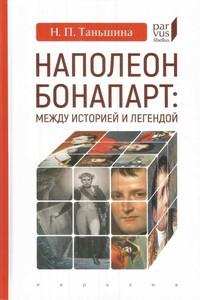
Наполеон притягивает и отталкивает, завораживает и вызывает неприятие, но никого не оставляет равнодушным. В 2019 году исполнилось 250 лет со дня рождения Наполеона Бонапарта, и его имя, уже при жизни превратившееся в легенду, стало не просто мифом, но национальным, точнее, интернациональным брендом, фирменным знаком. В свое время знаменитый писатель и поэт Виктор Гюго, отец которого был наполеоновским генералом, писал, что французы продолжают то показывать, то прятать Наполеона, не в силах прийти к окончательному мнению, и эти слова не потеряли своей актуальности и сегодня.
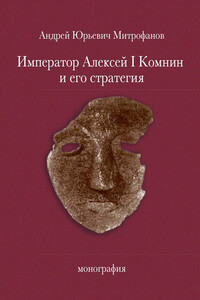
Монография доктора исторических наук Андрея Юрьевича Митрофанова рассматривает военно-политическую обстановку, сложившуюся вокруг византийской империи накануне захвата власти Алексеем Комнином в 1081 году, и исследует основные военные кампании этого императора, тактику и вооружение его армии. выводы относительно характера военно-политической стратегии Алексея Комнина автор делает, опираясь на известный памятник византийской исторической литературы – «Алексиаду» Анны Комниной, а также «Анналы» Иоанна Зонары, «Стратегикон» Катакалона Кекавмена, латинские и сельджукские исторические сочинения. В работе приводятся новые доказательства монгольского происхождения династии великих Сельджукидов и новые аргументы в пользу радикального изменения тактики варяжской гвардии в эпоху Алексея Комнина, рассматриваются процессы вестернизации византийской армии накануне Первого Крестового похода.
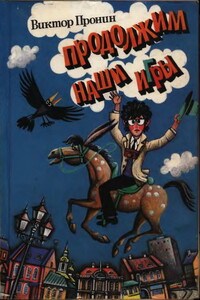
Виктор Пронин пишет о героях, которые решают острые нравственные проблемы. В конфликтных ситуациях им приходится делать выбор между добром и злом, отстаивать свои убеждения или изменять им — тогда человек неизбежно теряет многое.
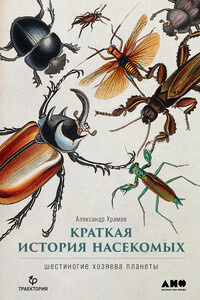
«Любая история, в том числе история развития жизни на Земле, – это замысловатое переплетение причин и следствий. Убери что-то одно, и все остальное изменится до неузнаваемости» – с этих слов и знаменитого примера с бабочкой из рассказа Рэя Брэдбери палеоэнтомолог Александр Храмов начинает свой удивительный рассказ о шестиногих хозяевах планеты. Мы отмахиваемся от мух и комаров, сражаемся с тараканами, обходим стороной муравейники, что уж говорить о вшах! Только не будь вшей, человек остался бы волосатым, как шимпанзе.
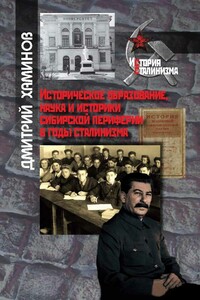
Настоящая монография посвящена изучению системы исторического образования и исторической науки в рамках сибирского научно-образовательного комплекса второй половины 1920-х – первой половины 1950-х гг. Период сталинизма в истории нашей страны характеризуется определенной дихотомией. С одной стороны, это время диктатуры коммунистической партии во всех сферах жизни советского общества, политических репрессий и идеологических кампаний. С другой стороны, именно в эти годы были заложены базовые институциональные основы развития исторического образования, исторической науки, принципов взаимоотношения исторического сообщества с государством, которые определили это развитие на десятилетия вперед, в том числе сохранившись во многих чертах и до сегодняшнего времени.

Эксперты пророчат, что следующие 50 лет будут определяться взаимоотношениями людей и технологий. Грядущие изобретения, несомненно, изменят нашу жизнь, вопрос состоит в том, до какой степени? Чего мы ждем от новых технологий и что хотим получить с их помощью? Как они изменят сферу медиа, экономику, здравоохранение, образование и нашу повседневную жизнь в целом? Ричард Уотсон призывает задуматься о современном обществе и представить, какой мир мы хотим создать в будущем. Он доступно и интересно исследует возможное влияние технологий на все сферы нашей жизни.